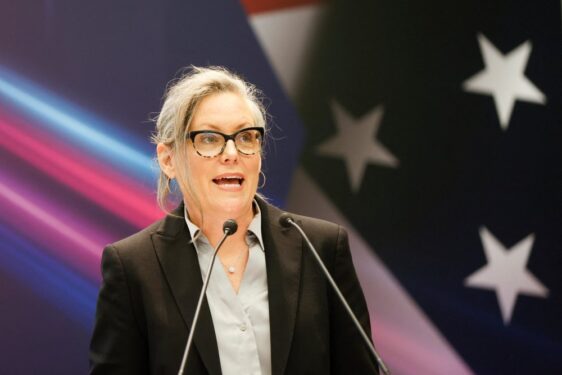
WASHINGTON — Arizona Gov. Katie Hobbs signed a repeal of the state’s 1864 near-total abortion ban May 2, the day after the state Senate voted to repeal it. The previous week, House legislators voted to repeal the ban that the state Supreme Court let stand on April 9.
During a signing ceremony, Hobbs said she has “heard from doctors who were unsure if they would wind up in a jail cell for simply doing their job, women who told me they didn’t know if it was safe to start a family here in Arizona.” She said those “excruciating conversations” are why this ban needed to be repealed.
Two Republicans joined the 14 Democrats to pass the measure May 1.
In a statement after the Senate vote, Hobbs said: “This repeal is essential for protecting women’s lives; it is just the beginning of our fight to protect reproductive healthcare.”
With the bill signed, abortions will be banned after 15 weeks of pregnancy following a 2022 state statute, but there is also a window when the 1864 law could take effect, since the repeal is not valid until 90 days after the end of the legislative session which will be in June or July. State officials were looking into ways to speed up this process.
“Without an emergency clause that would allow the repeal to take effect immediately, the people of Arizona may still be subjected to the near-total abortion ban for a period of time this year,” Arizona state Attorney General Kris Mayes said in a statement, adding that her office is “exploring every option available to prevent this outrageous 160-year-old law from ever taking effect.”
The bill’s vote lasted for more than an hour and included several impassioned speeches. It also drew advocates on both sides of the issue to the statehouse.
The Arizona bishops who said they were pleased with the court’s ruling last month to continue the 1864 law, also expressed concern that Arizonans might vote for an amendment that would not only undo the ban but be even far reaching.
The Arizona for Abortion Access campaign has already secured more than enough signatures to put a constitutional amendment on the state’s ballot to ensure that access to abortion is protected. It is one of several states to put the issue of abortion rights to voters this November.
If the ballot initiative secures enough votes, it would amend Arizona’s constitution to prohibit the state from legislating against abortion up until fetal viability, around 24 weeks into a pregnancy, and would also place other abortion protections into law.
In an April 9 statement issued by the Arizona Catholic Conference, the state’s bishops said they were aware that a “pro-abortion initiative is being circulated that, if approved by voters, will ultimately dictate Arizona law in this regard.”
The bishops said that if the ballot passes it would “likely remove most safeguards for girls and women that are currently in place at abortion clinics, permit a minor to obtain an abortion without parental involvement or permission, and allow for painful late-term abortions of viable preborn children.”
“We do not believe that this extreme initiative is what Arizona wants or needs, and we continue to pray that it does not succeed,” they said.
